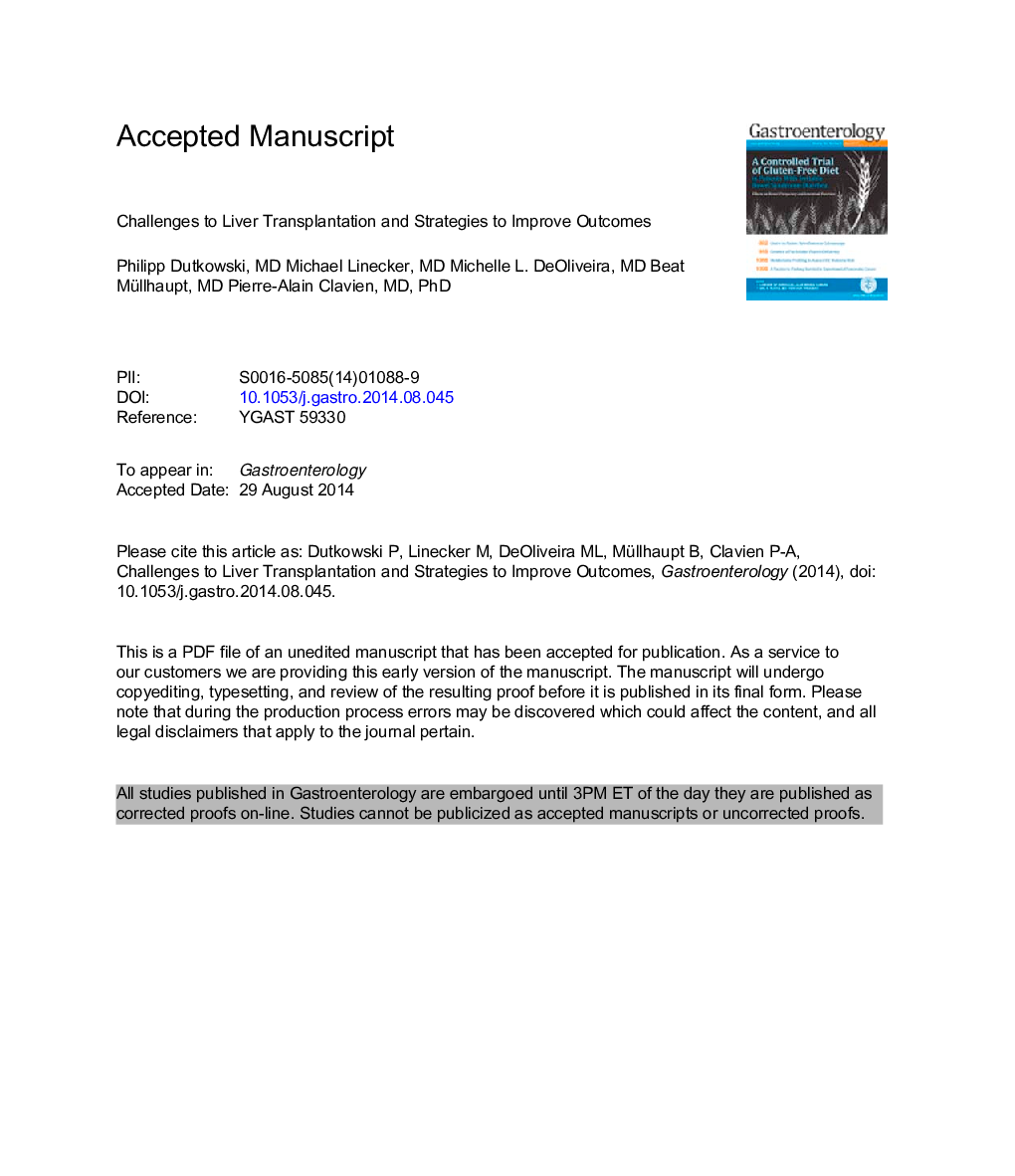| Article ID | Journal | Published Year | Pages | File Type |
|---|---|---|---|---|
| 6093859 | Gastroenterology | 2015 | 37 Pages |
Abstract
Liver transplantation (LT) is a highly successful treatment for many patients with nonmalignant and malignant liver diseases. However, there is a worldwide shortage of available organs; many patients deteriorate or die while on waiting lists. We review the important clinical challenges to LT and the best use of the scarce organs. We focus on changes in indications for LT and discuss scoring systems to best match donors with recipients and optimize outcomes, particularly for the sickest patients. We also cover controversial guidelines for the use of LT in patients with hepatocellular carcinoma and cholangiocarcinoma. Strategies to increase the number of functional donor organs involve techniques to perfuse the organs before implantation. Partial LT (living donor and split liver transplantation) techniques might help to overcome organ shortages, and we discuss small-for-size syndrome. Many new developments could increase the success of this procedure, which is already one of the major achievements in medicine during the second part of the 20th century.
Keywords
DCDDDLTLDLTEASLAASLDUCSFPHCSFSSDCCSOFTSVRDRIICCECDHCCnonalcoholic steatohepatitisHOPEAmerican Association for the Study of Liver DiseasesEuropean Association for the Study of the LiverDonation after cardiac deathextended criteria donorinterferonIFNBARUniversity of California San FranciscoSmall-for-size syndromedonor risk indexModel of End-stage Liver DiseaseNash Hepatitis CHCVHepatitis C virusSustained virologic responsehypothermic oxygenated perfusionMachine perfusionLiver transplantationliving donor liver transplantationdeceased donor liver transplantationHepatocellular carcinomaIntrahepatic cholangiocarcinomaperihilar cholangiocarcinomadistal cholangiocarcinomaMELD
Related Topics
Health Sciences
Medicine and Dentistry
Gastroenterology
Authors
Philipp Dutkowski, Michael Linecker, Michelle L. DeOliveira, Beat Müllhaupt, Pierre-Alain Clavien,
